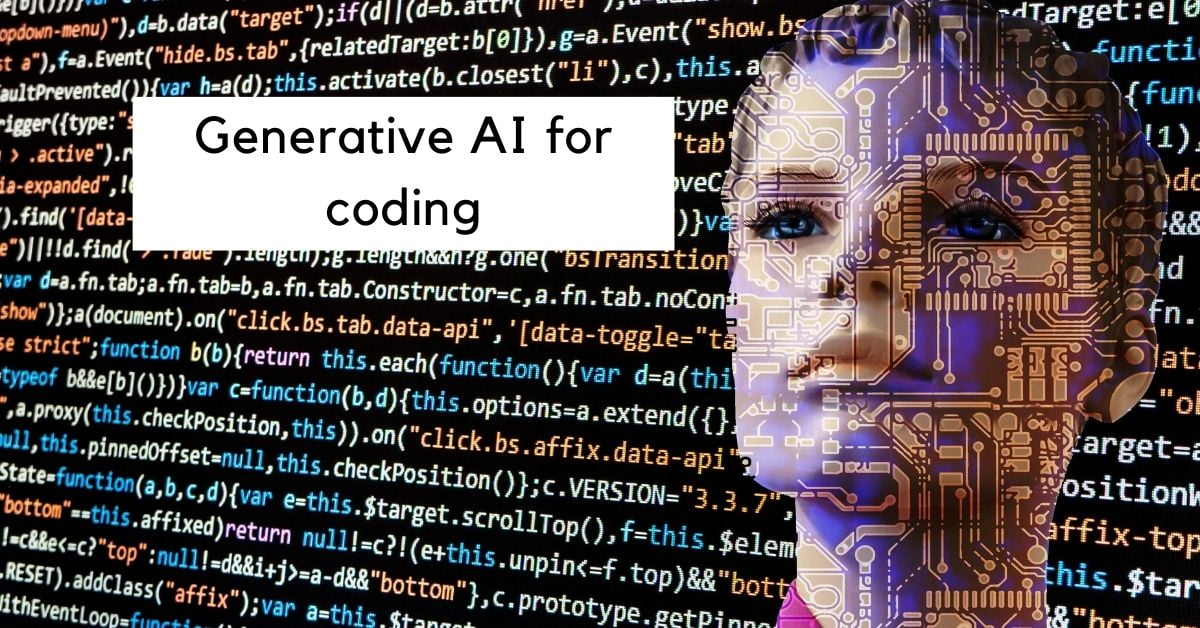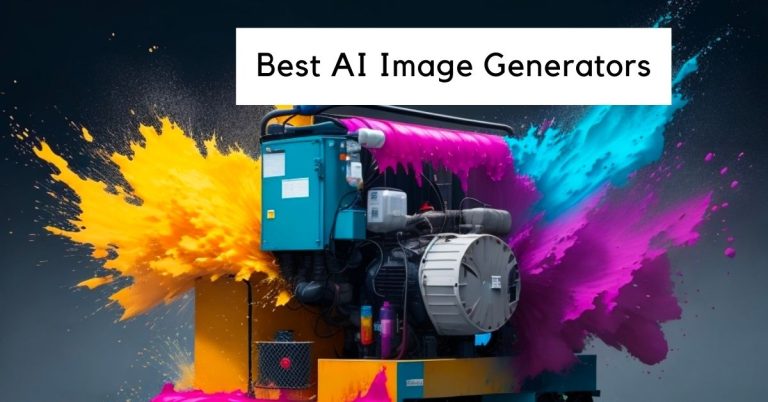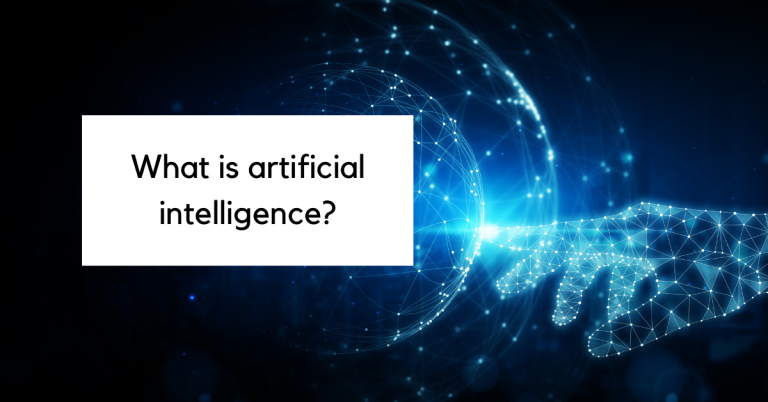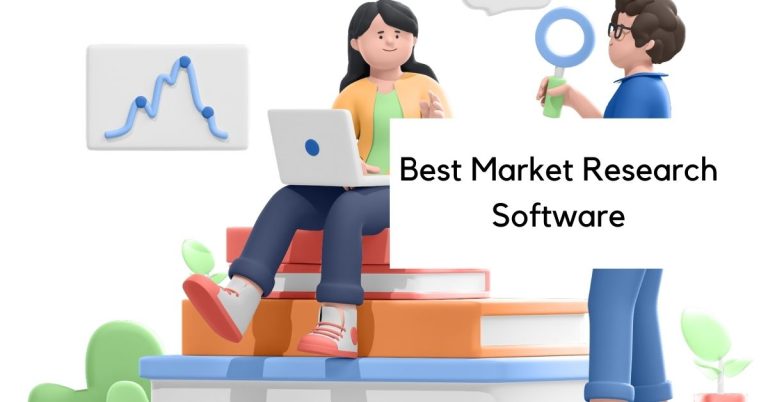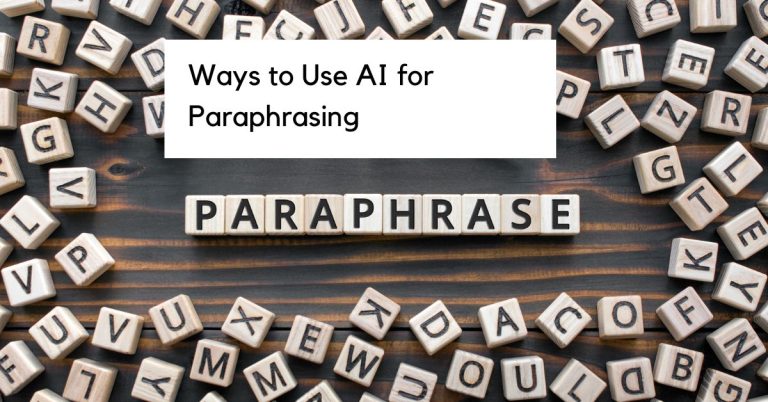A New Hope for Efficient Coding: May the Generative AI Be with You
A new force is awakening, ready to revolutionize the way we write software. Our mission is to explore its applications, uncover its benefits, and confront the potential challenges AI coding assistants present. But fear not for we shall also address concerns about software engineers’ job displacement.
Recent advancements in generative artificial intelligence technologies have already begun reshaping the programming landscape, paving the way for a future where software engineering and coding are transformed into AI-assisted coding. Patience you must have, my young Padawan because we will address all of this below.
Understanding generative AI in coding: Can AI write code?

Generative AI, powered by advanced technologies such as GitHub Copilot and ChatGPT has become a prominent force in the coding landscape. Unlike traditional AI systems, generative AI goes beyond performing specific tasks; it uses neural networks and deep learning algorithms to identify patterns and generate new code based on natural language prompts (you can read more about how those work in our articles on foundation models and large language models).
With its ability to suggest and generate code sections, create tests, and optimize code performance, generative AI offers developers a powerful tool to accelerate code development and automate repetitive tasks, but only if said programmers know how to ask the right questions (queue prompting and some of the best prompt engineering courses).
What is an AI coding assistant?
An AI coding assistant is a tool that helps developers write code by providing suggestions, automating certain tasks of writing code, and offering solutions to programming problems. It uses generative AI models and natural language processing to understand code and provide relevant recommendations (you can learn exactly how in the best AI and machine learning courses). AI coding assistants offer valuable support for experienced developers in tasks like writing boilerplate code and generating documentation.
Current adoption of generative AI in coding
The current adoption of generative AI in coding is rapidly gaining momentum, revolutionizing the way software engineers work. Generative AI tools, such as GitHub Copilot, Amazon CodeWhisperer, and ChatGPT, have been embraced by developers worldwide.
These AI tools automate mundane tasks and coding tasks and free up developers to focus on more complex challenges, just like they have in the legal industry, education, medicine, and the insurance industry.
AI coding assistants have proven to be valuable in code generation, bug fixing, and code optimization, providing suggestions, automating debugging processes, and optimizing code for better performance.
Augmend, a collaboration software startup, utilizes Copilot and ChatGPT to accelerate its software development lifecycle, significantly increasing productivity. Redfin, a real estate company, uses language models to assist with tasks like language migration and understanding legacy code.
Growth of AI in coding
The growth trajectory of generative AI in coding is on a steep rise. Surveys reveal a high adoption rate among developers, with 92% of U.S.-based developers already utilizing AI coding tools. The interest and intent to use generative AI in coding are also increasing, as indicated by the positive sentiments expressed in surveys conducted by GitHub and Stack Overflow.
These statistics reflect the growing recognition of generative AI’s potential to enhance productivity, collaboration, and the overall software development process. As advancements continue and more developers recognize the value of generative AI, its growth in the coding domain is expected to continue.
Application and benefits of generative AI in coding
Can AI help human programmers to code faster? Is an AI coding assistant capable of code hinting and code suggestions? Can it identify errors and provide bug fixes? Below we discuss the many ways an AI coding assistant can help human coders to complete tasks and achieve a never before seen coding speed.
Code generation, completion, and automation

Generative AI has significantly impacted the field of coding by assisting in code generation and automating repetitive and manual coding tasks. It has the potential to accelerate the development process and increase productivity for software engineers.
By leveraging machine learning algorithms and natural language processing, generative AI tools like Tabnine and GitHub Copilot have emerged as top players in code generation applications. These tools employ techniques such as code completion and neural code generation to suggest the next lines of code based on context and syntax, supporting various programming languages.
Generative AI in coding offers several benefits, including reducing human errors and improving code quality. With its ability to analyze code patterns and suggest improvements, generative AI helps developers identify and fix bugs, refactor code, and improve code style.
Companies like Amazon with CodeWhisperer and OpenAI in collaboration with GitHub with GitHub Copilot have successfully implemented generative AI to automate code review, optimize existing code, and suggest code snippets. These applications demonstrate the practicality and effectiveness of generative AI in code generation and automation (so here are some of the best AI code generators on the market).
Code review and optimization
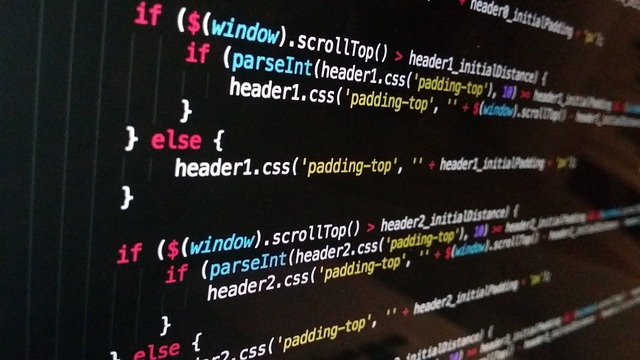
Generative AI excels in analyzing patterns in existing code and generating new lines of code optimized for readability, efficiency, and error-free execution. This capability is particularly useful in code reviews, where generative AI can assist code editors in identifying potential issues and algorithmic improvements.
One way generative AI aids developers is by generating code snippets. These snippets perform specific tasks, such as data sorting or calculations, saving developers time and reducing the risk of errors. Additionally, generative AI can detect bugs by generating test cases that target specific parts of the code, enabling developers to identify and fix bugs more quickly.
Moreover, generative AI helps developers write cleaner and more efficient code. By analyzing existing code, generative AI can suggest alternative implementations that are more efficient or consume fewer resources. This is especially valuable in resource-constrained environments like mobile devices or embedded systems.
Several successful applications of generative AI in code optimization and performance improvement have emerged. For example, GitHub’s AI-powered code review tool, CodeQL, analyzes code to identify potential security vulnerabilities and offers suggestions for optimizing code and improving overall quality.
Integrating generative AI into code reviews offers numerous advantages. AI algorithms can analyze code more thoroughly and quickly than humans, identifying patterns and potential issues that may be missed by human reviewers. This leads to improved code quality and reduced human bias.
Bug detection and bug fixing
AI technology revolutionizes the way bugs are detected, allowing for early identification during the development cycle, and preventing issues from affecting the end-user experience.
One of the key benefits of generative AI in bug detection is its ability to improve code quality. AI-powered tools comprehensively analyze codebases, catching bugs and vulnerabilities that may have otherwise gone unnoticed. By addressing these issues before they cause disruptions or compromise security, developers can ensure higher code quality in their software.
Several successful applications of generative AI in bug detection have emerged. For example, DeepCode utilizes AI to analyze code repositories and detect bugs, vulnerabilities, and code smells.
CodeQL, developed by GitHub, employs AI to identify bugs, security vulnerabilities, and quality issues in codebases, providing a comprehensive understanding of code behavior.
Snyk combines AI and machine learning to detect and fix vulnerabilities in open-source dependencies.
These examples highlight the power of generative AI in bug detection and demonstrate how it has become indispensable for developers striving to enhance code quality and eliminate bugs efficiently.
Code refactoring and modernization
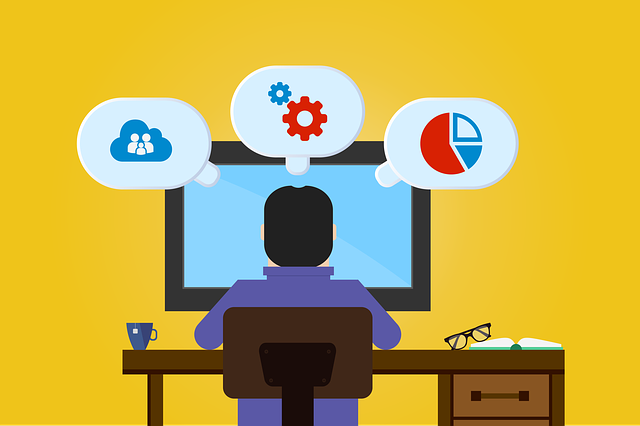
One key advantage is AI’s ability to analyze legacy code and propose refactoring strategies. By leveraging massive datasets and algorithms, generative AI can understand the dependencies and interactions within code, allowing it to suggest effective ways to divide monolithic applications into smaller, more manageable microservices. This process, exemplified by IBM’s Project Minerva for Modernization, streamlines the refactoring process and minimizes the amount of code that needs to be rewritten.
Moreover, generative AI facilitates the migration of code to newer technologies or frameworks. With the rapid pace of technological advancements, it is crucial for enterprises to update their software systems. However, the complexity, cost, and risk associated with such updates can be daunting. Generative AI can alleviate these challenges by providing AI-guided dependency analysis, which aids in the seamless migration of monolithic applications to microservices architecture.
Successful applications of generative AI in code refactoring and modernization are already evident. For instance, CARGO, an algorithm developed under Project Minerva, demonstrated significant improvements in latency and throughput when applied to open-source Java programs for trading stocks, booking flights, and buying pets.
By leveraging generative AI, these programs experienced an 11% reduction in latency and a 120% increase in throughput, resulting in faster and more efficient software.
Fostering collaboration and knowledge sharing
AI enables seamless collaboration among developers by breaking down geographical barriers and connecting individuals and teams in real time. This technology facilitates the exchange of ideas, expertise, and perspectives, creating an environment conducive to innovation.
Moreover, generative AI plays a vital role in code reviews, documentation, and knowledge sharing. It assists developers by providing suggestions, automating repetitive tasks, and offering alternative implementations, thereby enhancing productivity and accelerating development.
Generative AI empowers developers to learn from and contribute to a collective coding knowledge base by leveraging its ability to analyze vast amounts of existing code.
By training on extensive code repositories, generative AI models capture the syntax, structure, and patterns of different programming languages, enabling them to generate contextually relevant code snippets, functions, or even entire programs that align with the desired functionality, thereby fostering knowledge-sharing and collaboration among developers.
Successful applications of generative AI in fostering collaboration include tools like Studio Bot, which aids Android developers with code snippets and error fixes, and MakerSuite, which empowers developers to prototype ideas using large language models.
Ethical considerations and challenges
The use of generative AI in coding raises ethical considerations related to code ownership, intellectual property rights, and plagiarism. Fairness and accountability are crucial in ensuring the responsible use of generative AI-driven coding solutions.
The algorithms and models employed should be transparent, allowing developers to understand and validate the decisions made by the AI system. Striving for fairness ensures that the generated code does not discriminate against specific individuals or groups. Additionally, developers must be accountable for the code generated and produced by generative AI, taking responsibility for any issues or harm caused.
Integrating generative AI into existing coding practices and workflows presents challenges, as it requires adaptation and careful consideration of potential ethical implications.
The future: Will software developers be taken over by AI?
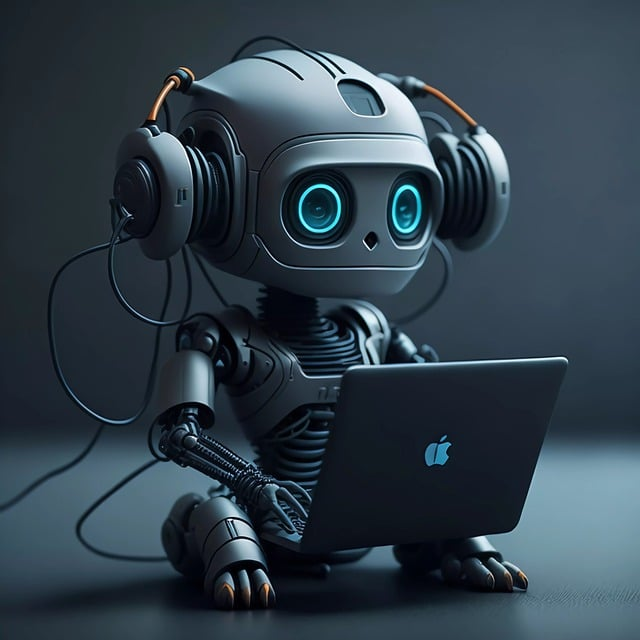
The future of software engineering and software developers in relation to AI is a topic of concern and speculation. With AI-powered tools automating tasks like code generation and bug fixing, programmers may need to adapt to new roles that involve overseeing AI coding assistants and designing complex algorithms.
However, it is unlikely that AI coding assistants will completely replace software developers. Developers possess creative thinking, intuition, and domain expertise that AI coding assistants currently lack. Continuous learning, adaptability, and upskilling will be crucial for developers to stay relevant in a generative AI-driven future. The field of software engineering and programming is evolving rapidly, and embracing the advancements brought by AI coding assistants can enhance developers’ problem-solving abilities.
While challenges and ethical considerations arise with the widespread adoption of AI coding assistants, an optimistic view sees artificial intelligence as a valuable tool that streamlines software engineering workflows and frees up developers to focus on solving bigger problems. It is essential for developers to stay updated with the latest advancements in generative AI for coding to leverage its transformative potential effectively.
Final thoughts
AI coding assistants bring great breakthroughs in the field and great risks for the integrated development environment if proceeded without caution. When AI coding assistants integrate into the team and the coding style, human coders can achieve a new coding speed. Intelligent code completions and AI-suggested code are only as good as the training data and the software developer overseeing the AI-generated autocomplete and the AI code editor.
We need to keep in mind that though promising, AI coding assistants are in fact just a tool, designed to help human coders. They can not read minds, not the minds of developers, or clients. Just like Dr. Milan Milanovic recently tweeted, “To replace programmers with artificial intelligence, clients will first need to accurately describe what they want. We are safe.”

